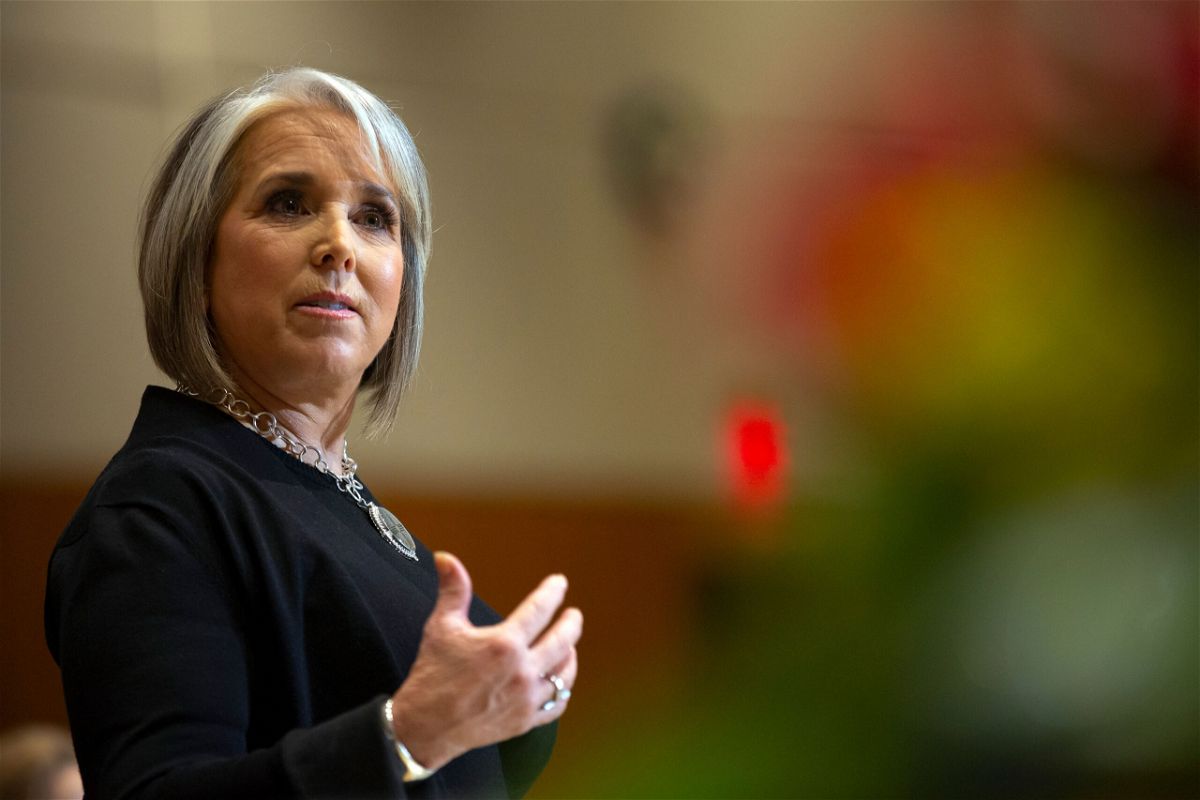New Mexico governor signs bill ending juvenile life sentences without parole

New Mexico Democratic Gov. Michelle Lujan Grisham signed a bill into law on March 17 that prohibits sentencing juvenile offenders to life in prison without eligibility for parole.
By Kaanita Iyer and Andy Rose, CNN
New Mexico Democratic Gov. Michelle Lujan Grisham signed a bill into law Friday that prohibits sentencing juvenile offenders to life in prison without eligibility for parole.
Under SB64, the No Life Sentences for Juveniles Act, offenders who committed crimes when they were younger than 18 and received life sentences will be eligible for parole hearings 15 to 25 years into their sentences, depending on the conviction, according to the state’s legislative website.
The legislation also applies to juveniles who were found guilty of first-degree murder even if they were tried as adults. If any juvenile offender is denied parole, they will “be entitled to a parole hearing at two-year intervals,” according to the bill.
New Mexico joins a slew of states that have enacted similar sentencing measures following a 2021 Supreme Court ruling that made it easier for those who committed their crimes when they were younger than 18 to be sentenced to prison for life without parole.
“When children commit serious crimes, they should be held accountable, but they should not spend their entire lives in prison without a chance for redemption,” said Democratic state Sen. Kristina Ortez, one of the bill’s sponsors, in a Facebook post.
But Republican state lawmakers have argued that the bill will let juvenile offenders get away with serious crimes.
State Rep. John Block, a Republican, introduced an amendment to exclude perpetrators of mass shootings that did not make it into the final text, he said in a tweet. Other amendments suggested by Republicans that were also left out, according to Block, were an increase in parole timelines and the exclusion of rapists.
The legislation passed the state Senate in late February with bipartisan support, and passed in the House earlier this week along party lines.
Illinois also passed a bill last month banning juvenile life sentences without parole. At least 24 other states and Washington, DC, have similar laws, according to the Campaign for the Fair Sentencing of Youth, a nonprofit advocacy organization.
The issue has been in the national spotlight in recent years as a result of several state laws and Supreme Court rulings.
The high court’s April 2021 opinion overturned its 2012 ruling that such sentences violated the Constitution’s ban on cruel and unusual punishment. In 2010, the Supreme Court held that the Constitution prohibits life without parole for offenders who were under 18 and committed non-homicide offenses.
The-CNN-Wire
™ & © 2023 Cable News Network, Inc., a Warner Bros. Discovery Company. All rights reserved.
CNN’s Ariane de Vogue contributed to this report.

